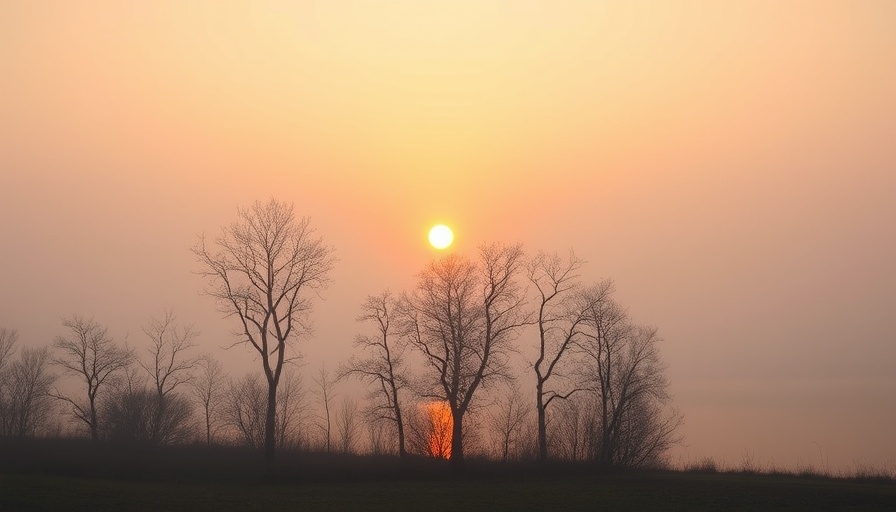
Smoky Skies: What Residents Need to Know
As wildfires rage across Canada, their effects are reaching far beyond the borders of their origin. Recent air quality alerts have been issued across Minnesota, warning residents about unhealthy air conditions due to smoke. With rising concerns for health and safety, it's crucial to address what these air quality changes mean for everyday citizens and how one can practically respond.
Health Risks: Understanding the Impact of Poor Air Quality
Smoke from wildfires can significantly degrade air quality, leading to a range of health issues, particularly for vulnerable populations such as children, the elderly, and those with pre-existing respiratory conditions. Symptoms can include coughing, throat irritation, and shortness of breath. The Minnesota Pollution Control Agency has indicated that individuals should limit outdoor activities during high smoke days and pay close attention to local health advisories. Together, community awareness and personal precautions can mitigate risks associated with these dangers.
Stay Informed: Resources for Monitoring Air Quality
To keep residents informed, online tools like AirNow provide up-to-date statistics and forecasts about air quality, specifically tailored for their regions. Local health departments also offer web resources that explain what the different air quality index levels mean—guiding actions one can take according to the daily conditions. Using these resources, residents can proactively manage their health amidst the evolving smoke situation.
Community Resilience: Banding Together in Adversity
Wildfires highlight the importance of community resilience, as regions threatened by smoke must prepare for potential long-term impact. Support systems for those affected, such as community health programs and public health outreach, play a vital role in fostering a sense of safety. Whether it’s sharing information on social platforms about staying safe in poor air quality or distributing masks, collective action makes a difference.
What You Can Do: Practical Tips for Healthy Living
To protect oneself during air quality alerts, there are a few practical steps to consider:
- Stay Indoors: Whenever possible, stay inside during peak smoke hours.
- Keep Windows Closed: Sealing windows and doors can prevent smoke from infiltrating your home.
- Use Air Filters: Using high-efficiency particulate air (HEPA) filters can help reduce indoor air pollution.
- Hydrate and Maintain a Healthy Diet: Staying hydrated helps manage the body’s defense against pollutants; fresh fruits and vegetables boost immune response.
These simple steps can go a long way in protecting health during these turbulent times.
In Summary: A Wake-Up Call for All
The smoke from Canadian wildfires serves as a potent reminder of how interconnected our environments are and how climate events can cascade into public health issues. Being informed and prepared is more important than ever. For those living in affected areas, adhere to air quality advisories, and take action to protect your health and the health of your loved ones. As this situation unfolds, staying knowledgeable and vigilant can help us all navigate through these unpredictable times.
 Add Row
Add Row  Add
Add 




Write A Comment